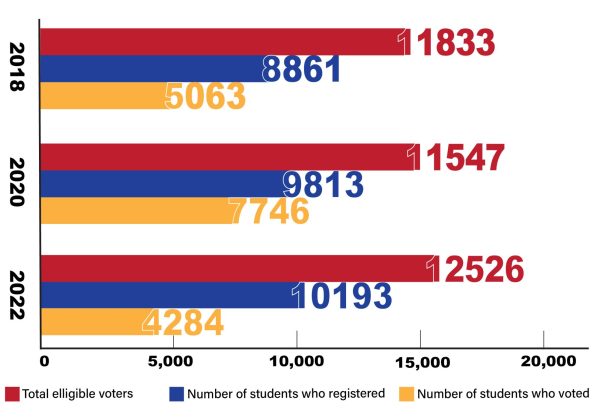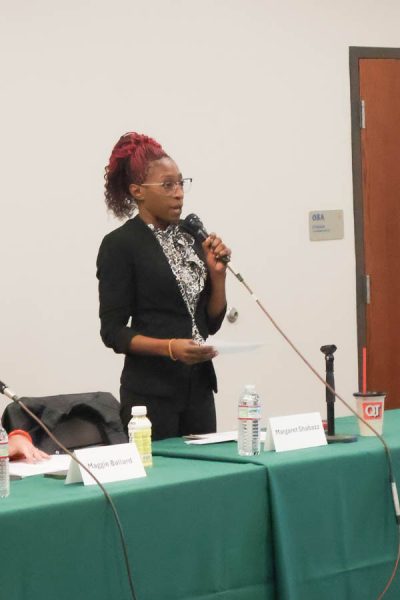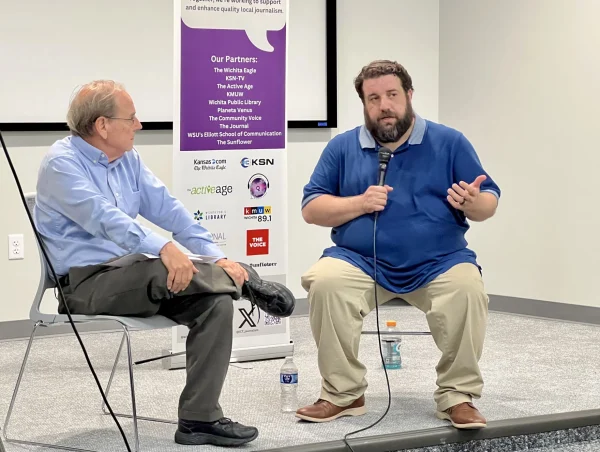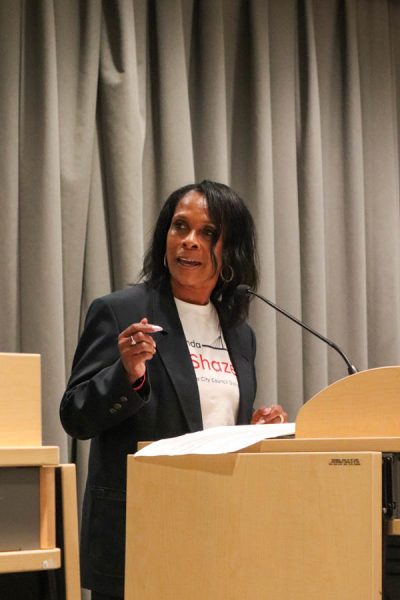ROTC refines students’ professional skills
WSU cadets at the park clean-up event.
Junior Ticie Dumas started as a biomedical engineering student; she now has the capability to lead soldiers.
With WSU’s ROTC, or Reserve Officer Training Corps program, Dumas and junior Lane Collins have developed leadership skills that will serve them in any career path down the line.
Dumas always had interest in a military atmosphere and almost joined her high school’s JROTC program but never committed. When recruiters visited her class her freshman year, she made the jump to join ROTC.
“Coming in, I [was] definitely not the same person I am now,” Dumas said. “I was a person that really didn’t speak out. […] ROTC has definitely taught me to step out of that comfort zone and be comfortable with the uncomfortable.”
Now, Dumas is in a medical unit and plans to broaden the meaning of medical assistance by adding engineering experience. Collins, on the other hand, didn’t even know what ROTC was in high school. He joined his freshman year.
“[ROTC] helps develop people professionally,” he said. “It helps them to stay on top of their grades.”
ROTC has given Collins the motivation to join the army and push through aviation school to eventually pilot helicopters someday. By taking charge of other cadets, he has grown his skills as a leader.
“Whenever you’re a leader, you’re put in a position to develop yourself,” he said, “either [by] taking accountability of people or giving briefs to the commander.”
One program that assists cadets in refining their skills is the KU Buddy Ranger Challenge. Held annually in Lawrence, the challenge tests cadets knowledge in everything from medics to weaponry, as well as physical capabilities. Winners earn opportunities to further their military education in specialized programs.
“We compete against many different schools across the nation,” Collins said. “We’re there to hone in our skills. We’re there to show other schools what we’re made of; what WSU is made of.”
Cadets aren’t the only ones growing professionally. Assistant Professor of Military Science Scot Mullis said working with these students has helped him become more empathetic and understanding. He hadn’t really considered the military as a career option until he had already received a degree in history from UMKC.
“I didn’t join the army until I was 27,” Mullis said. “I ended up joining the National Guard to subsidize some income, get some additional benefits, and be able to gift the GI bill to my daughter when she went to college.”
He began teaching ROTC at WSU in spring of 2018 after teaching a similar program in Nebraska for a few years.
“With the program being so young, the focus has been growing the program and making sure we’re sticking with the Cadet Command curriculum,” Mullis said.
Mullis, Dumas, and Collins all recommend that students look into the program and see if they think it would be beneficial for them. Scholarships and tuition assistance can cover up to 100 percent of students’ tuition as well as additional benefits.
“It fits a lot of people,” Mullis said. “Not everybody, and that’s OK.”
The ROTC center is in Grace Wilkie Annex. Students can email Mullis at [email protected] if they’re interested in joining the program.

Sascha Harvey is an illustrator/designer for The Sunflower. A senior majoring in graphic design, this is Harvey's fourth year on staff. He's previously...












Gabriella Levine • Mar 5, 2022 at 8:08 am
Hello, cool article. However, I noticed a few errors. First, Ticie Dumas is a Biomedical Engineering student (not health sciences). Second, in the article’s first sentence, you referred to Ticie using ‘he,’ but she uses she/her pronouns.